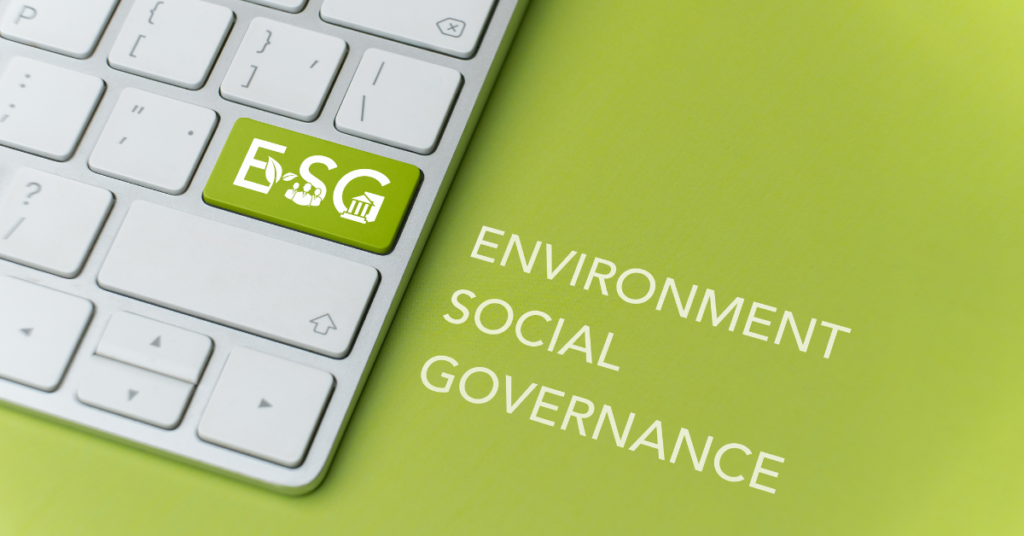CSRD directive – A New Stage of Non-Financial Reporting Starting in 2025


From January 1, 2025, approximately 50000 companies across the European Union will be subject to new non-financial reporting regulations.
What does this mean for entrepreneurs? And why should this obligation be viewed as an opportunity for growth?
The Corporate Sustainability Reporting Directive (CSRD) was adopted by the European Parliament and the Council of the European Union on December 14, 2022. It is part of the European Union’s ambitious strategy for sustainable development and combating climate change.
Its goal is to increase the transparency of business activities, supporting informed decisions by investors and other stakeholders. The CSRD aligns with the broader plans of the EU Green Deal, which aims to achieve climate neutrality in the EU by 2050.
The CSRD replaces the previous directive, the Non-Financial Reporting Directive (NFRD), expanding its scope in terms of both the number of companies subject to the directive and the reporting requirements. The new regulations focus on sustainability reporting, including detailed sustainability indicators related to environmental protection, social responsibility, and corporate governance.
The requirement to report information following the European Sustainability Reporting Standards (ESRS) allows for a more thorough representation of corporate sustainability efforts, emphasizing environmental impact and aligning with the Sustainable Finance Disclosure Regulation (SFDR) objectives. Developed by the European Financial Reporting Advisory Group (EFRAG), the ESRS encompasses various environmental, social, and governance (ESG) topics, such as climate change, biodiversity, and human rights.
By implementing these standards, companies deliver consistent and comparable sustainability data to investors and other stakeholders, enhancing decision-making and ensuring transparency. This approach helps identify ESG risks and opportunities and aligns with the EU Green Deal’s vision by integrating sustainability principles into corporate reporting frameworks.
Starting in 2024, the obligation for non-financial reporting applies to large public interest entities, including those employing over 500 workers and meeting specific financial thresholds. The first reports compliant with ESRS will be submitted in 2025. From 2025, the requirement extends to other companies subject to the directive, with their annual reports due in 2026. By 2026, medium-sized enterprises listed on regulated markets will also be included, with an option to defer sustainability reporting by two years.

In 2028, reporting obligations will encompass non-EU companies with branches in the EU generating over €150 million in net turnover within the EU. Their first reports will be submitted in 2029. Preparing for ESG reporting necessitates establishing systems for data collection and consolidation.
According to the CSRD, ESG reporting obligations in 2025 apply to:
All large companies meet two out of three criteria:
Employing over 250 workers.
Net turnover exceeding €40 million.
Total assets exceeding €20 million.
Listed companies, including medium-sized enterprises on regulated markets, with a transitional period provided.
Corporate groups and selected subsidiaries of international companies significant to the value chain.
CSRD reporting requirements involve detailed sustainability information about a company’s environmental, social, and governance (ESG) factors. This includes disclosures on greenhouse gas emissions, decarbonization strategies, working conditions in supply chains, diversity and inclusion, and climate-related risk management policies.
A study by SAP Poland reveals the growing strategic importance of ESG in Polish companies. While few businesses previously implemented ESG strategies, nearly 70% now employ tools for non-financial reporting. Motivations include improved financial performance, enhanced brand reputation, and stronger customer engagement. Companies also recognize benefits such as better access to sustainable investments and improved stakeholder relations.

However, barriers remain, such as high costs, insufficient data, and low awareness within organizations. Key enablers include access to tailored solutions, sector-specific templates, and cost optimization. Technology, particularly IT tools, plays a critical role in scaling and embedding sustainability practices effectively.
Piotr Ferszka, CEO of SAP Poland, emphasizes that investing in ESG not only supports competitiveness but also underpins the innovation and transformation essential to maintaining Europe’s global market position.
Though ESG reporting obligations may seem like an additional regulatory burden, they offer numerous advantages:
Access to Financing: Financial institutions increasingly prefer companies aligned with ESG metrics. Transparent sustainability reports enhance the chances of securing favorable financing conditions.
Competitive Advantage: Customers and partners increasingly prioritize sustainable practices. Transparency in corporate sustainability builds trust and reinforces a company’s reputation, offering a competitive edge.
Better Risk Management: ESG reporting helps identify and manage sustainability risks related to climate change, regulations, and societal expectations. Double materiality assessments allow companies to analyze their environmental impact and its effects on business performance.
Attracting Talent: Younger generations, including Millennials and Gen Z, prefer employers committed to social responsibility and environmentally sustainable practices.
Reputation Risk Mitigation: Transparency in ESG factors and responsible sustainability initiatives reduce the risk of adverse reactions from stakeholders and local communities.
The CSRD is part of a broader EU regulatory framework aimed at achieving climate neutrality by 2050. It applies not only to European companies but also to international companies with significant operations in European markets, provided they meet specific financial criteria. These regulations enhance transparency and accountability for sustainability risks and ESG factors worldwide, promoting resource conservation and addressing sustainability issues globally.

Non-EU companies exporting products or services to European markets must adapt to CSRD reporting standards. This includes disclosing ESG metrics on environmental impact, corporate governance, and social responsibility to ensure compliance and maintain competitiveness in international markets.
The reporting obligations stemming from the CSRD represent both a challenge and a significant opportunity for growth and competitive advantage. Companies that strategically embrace these requirements can secure better access to capital, enhance their reputation, and improve financial performance. It’s essential to view the CSRD as an investment in the future – both for businesses and the planet.
If your company is preparing to implement the requirements stemming from the CSRD directive, Plan Be Eco is the ideal solution to help you meet the new obligations related to non-financial reporting. Thanks to our comprehensive offering, designed with businesses across various industries and sectors in mind, we provide you with the necessary tools to smoothly transition to compliance with CSRD regulations.
We assist organizations in preparing reports in line with the GHG Protocol, analyzing data, and adapting processes to ensure that by 2025, your company fully complies with ESG and sustainability requirements. We offer support in calculating carbon footprints, conducting double materiality analyses, and aligning with ESRS standards. With Plan Be Eco, you gain confidence that your actions comply with new regulations, and your organization becomes more transparent and socially responsible.
Schedule a free consultation! Click on the graphic below and choose a convenient time for you.
https://www.pwc.pl/pl/esg.html
https://www.money.pl/gospodarka/pora-na-esg-dlaczego-raportowania-nie-warto-odkladac-na-pozniej-7090132745276128a.html
https://finance.ec.europa.eu/capital-markets-union-and-financial-markets/company-reporting-and-auditing/company-reporting/corporate-sustainability-reporting_en
https://www.erp-view.pl/rynek-it/31306-raportowanie-esg-ulatwia-dostep-do-kapitalu-i-inwestorow.html
https://kpmg.com/pl/pl/home/services/esg-environmental-social-and-governance/raportowanie-esg-zgodne-z-dyrektywa-csrd.html
Plan Be Eco Supplier – a comprehensive platform for decarbonization and […]
Transport and logistics (the TSL sector) have long been a […]
How to Simplify and Standardize Environmental Data from Suppliers? In […]